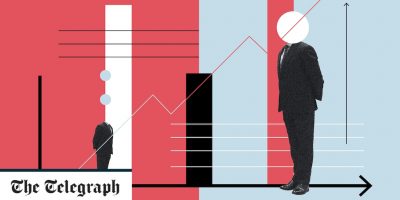Trade tension between China and the US and a currency crisis in Turkey are threatening to increase volatility in emerging markets, leaving some investors nervous.
Emerging markets are less predictable than developed economies, creating opportunities for active managers who aren’t shy of a downturn.
One such manager, Claudia Calich, runs M&G’s £949.2m Emerging Market Bond fund, which is included in the “Telegraph Income 10”, a list of our favourite high-yielding funds.
Ms Calich finds value in countries she thinks can grow economically, where credit scores are lower and bond yields are more attractive. She told us where she sees value and how she mitigates corruption.
How do you decide where to invest?
Before deciding where to invest geographically I look at global themes. A geographic approach doesn’t really work. Heterogeneous areas may have huge diversification; for example, investing in Venezuela is a different story to investing in Colombia.
There are huge differences in the quality of government or corporate bonds in countries that may look similar from the outside, but are massively different.
We assess global growth, commodities, inflation, monetary policy, the price of the dollar – any key drivers that would impact emerging markets in either a positive or negative way.
Then we look at countries themselves. If a country looks healthy and it doesn’t look like there will be a crisis we will invest, and we could consider corporate bonds as well as government.
“Top-down” drivers will always come out on top. In other words, we could be investing in a bond of the best company in the world, but if there is a wider crisis or period of instability in that country, the company will inevitably suffer.
Do you ever bet against a country?
Rarely. We will sometimes bet against a country if we think that the market is mispricing the eventuality of a scenario that could disturb things.
There are a number of ways we can do this: we can simply choose not to invest there, short sell [bet against] the currency, or enter into a credit default swap [a form of insurance on a bond] that will pay out if things go downhill.
- For more money news sign up for our newsletter
During the Peruvian general election in 2016, I thought the market was underestimating the probability of a more populist candidate making it through to the second round. I bought protection through credit default swaps and shorted the currency. The bet didn’t come off in this case and I quickly closed my position.
How do you feel about investing in corrupt countries?
If we have concerns or think the risks are not priced into the market or the bonds, we can sit down with the issuers and put questions to them. If they are being evasive or not giving us the full picture, we can’t understand what is going on in that country or in that company so we won’t invest.
Take Mozambique – we didn’t invest there because we had concerns about transparency. It turned out we were right when it was discovered the country’s debt levels were a lot worse than the government was letting on.
Credit:
M&G
Where do you currently see value?
At the moment we are investing in smaller economies such as Ivory Coast, Angola, Senegal, Nigeria, Uruguay and Rwanda.
For the most part they are benefiting from recovering growth where the currency has previously been devalued or the commodities particular to those economies have not done so well.
We think they are now turning the corner and growth is coming back, fiscal deficits are shrinking and commodity prices such as cocoa in the Ivory Coast or oil in Angola are on the rise.
What have been your best and worst investments?
I bought Ukrainian government bonds following the annexation of Crimea by Russia in 2014. As the country recovered and its debt was restructured we more than doubled our money in about six months.
Recently we got hurt a little by the crisis in Turkey. I had about 1pc to 2pc of the fund invested in local currency and the banks. Thankfully the exposure was minimal.
Do you have your own money in the fund?
Yes.
What would you have been if not a manager?
I would have worked at an international aid organisation.
Credit:
Jekesai Njikizana/AFP
In focus: Rwanda
Rwanda is a country that many investors are overlooking at the moment and that is one of the main reasons I like it. Its government bonds are too small to be listed on J P Morgan’s benchmark index as they have released only around $400m. But there is enormous growth potential.
This is a country that has been ravaged by civil war in the past, and is now looking to recover, so there is a lot of low-hanging fruit. The country is no longer fighting itself so things need to be rebuilt and we are expecting a steady increase in infrastructure and productivity as things stabilise over the long term.
Growth in Rwanda is higher than its neighbours, but it is stable growth, not driven by any one spike in commodities prices or any other bubble. For a sub-Saharan African country we think that transparency has come a long way, too. There are still issues, but things are improving in the business culture and in gender equality.
This was one of the first holdings I added to the fund when I took over in 2013 and it has been in the fund since. It’s a core position and a solid performer, paying a yield of around 5pc to 6pc.
























Comments